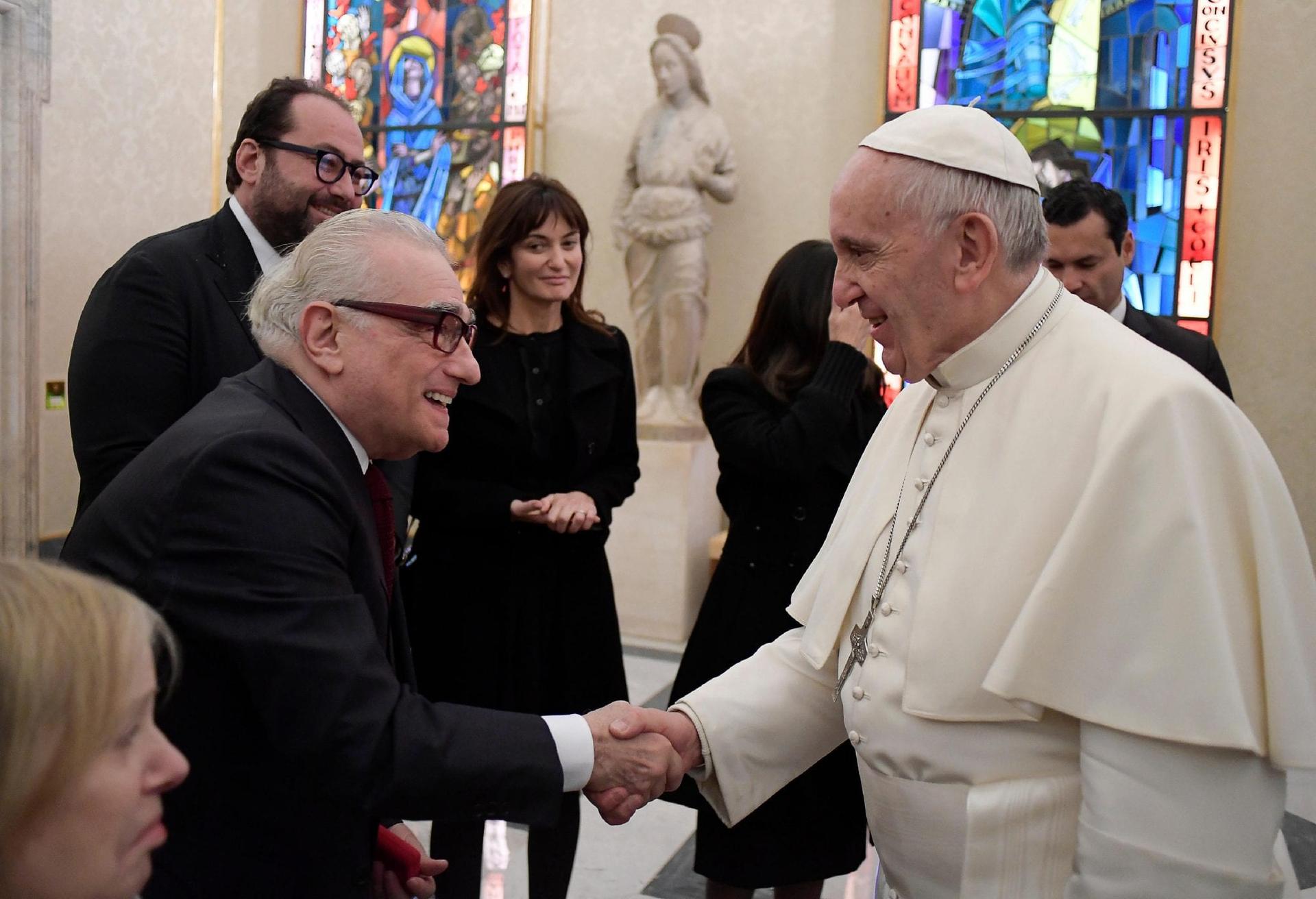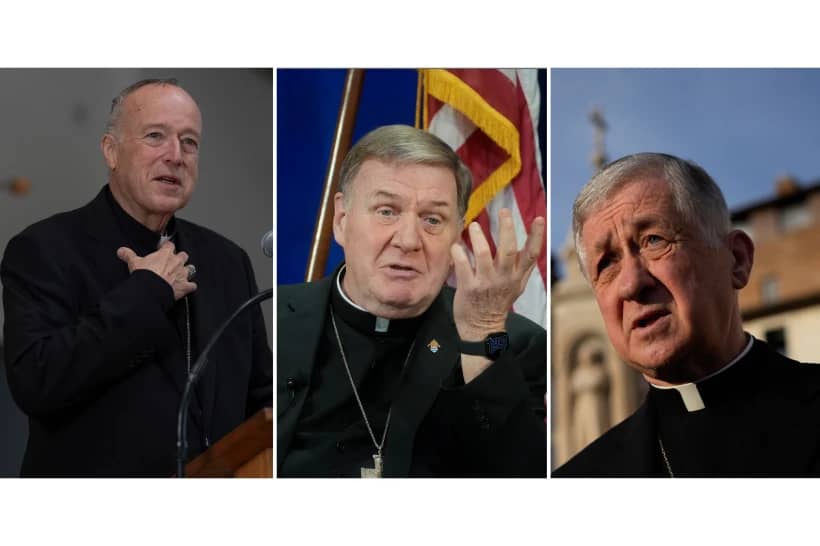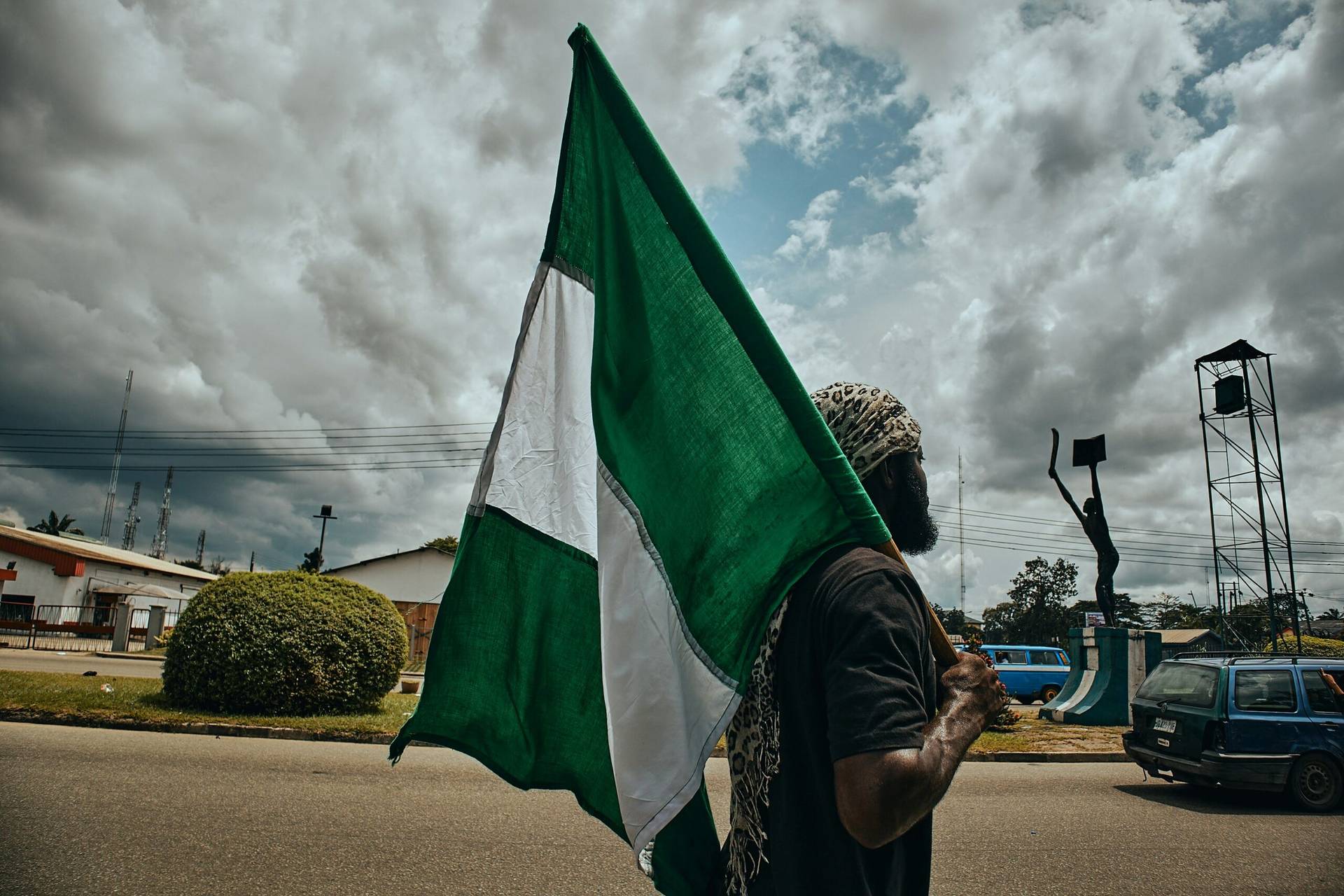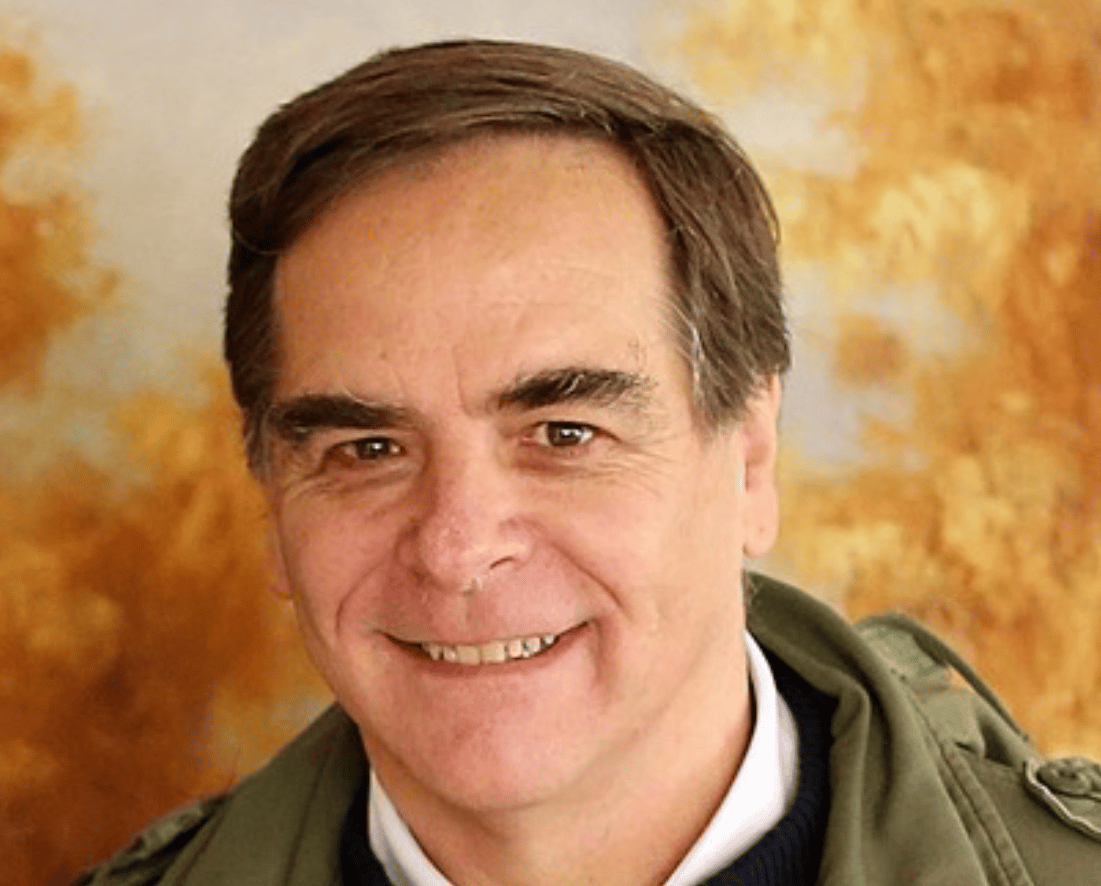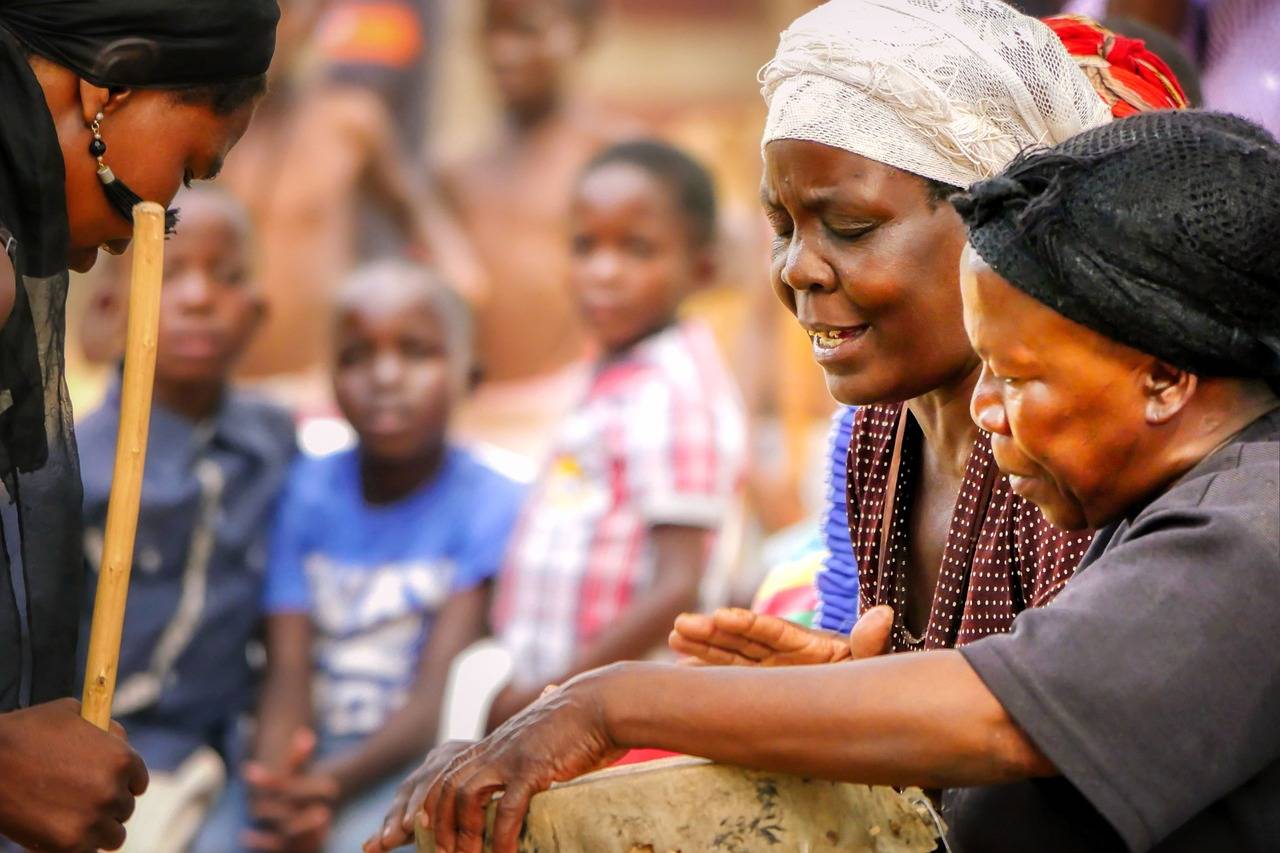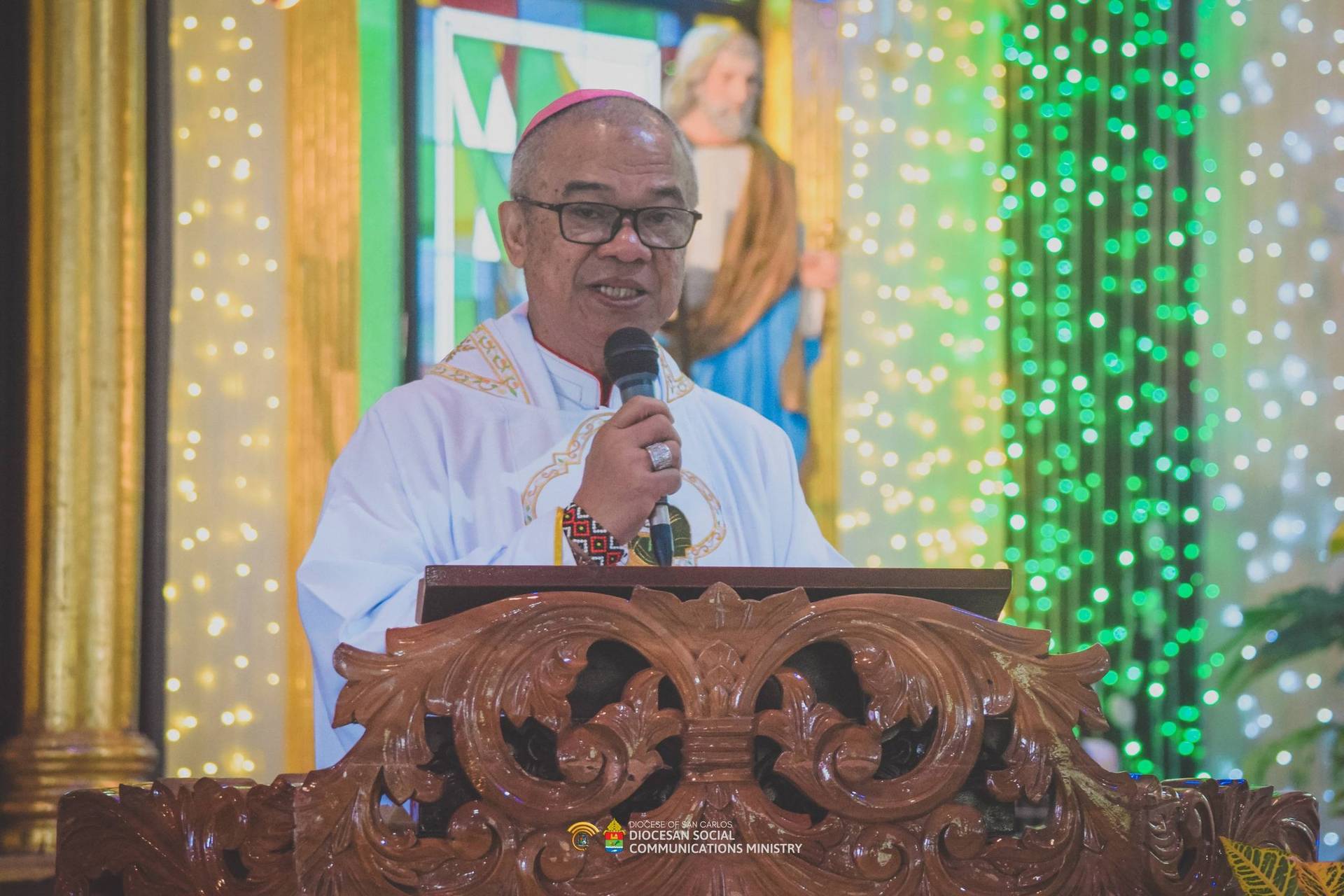ROME—Although it’s not being released until December 22, Martin Scorsese’s latest movie, Silence, already has had its world premiere, in what some might see as an odd environment for the mind behind movies such as Taxi Driver and The Wolf of Wall Street: A room full of 300 Jesuit priests.
The event took place in Rome last week, and a day later, the famed director got to meet with Pope Francis, a Jesuit himself, at the Vatican.
The reason behind the Church-buzz around the movie is simple: it follows the trials and tribulations of 17th century Portuguese Jesuit missionaries, played by Andrew Garfield and Adam Driver, as they go to Japan looking for their fallen mentor, played by Liam Neeson.
Silence, 30 years in the making according to Scorsese, is based on a 1966 book with the same name by Catholic convert Japanese Writer Shusaku Endo.
“He was the most disarming…everything was fine,” Scorsese said of meeting Francis during a screening of the film in the States. “He was smiling and thanked us for being there.”
The pope told Scorsese that he had read the 1966 novel on which the film was based.” (Pope Francis) did say, I hope the story of the film, knowing the book, bears much fruit,” Scorsese said.
During the past two years, Jesuit Father James Martin, author of The Jesuit Guide to (Almost) Everything, was heavily involved in the process, working as a consultant on the script to make sure its portrayal of the members of the Society of Jesus, as the order founded by St. Ignatius of Loyola is named, was accurate.
He also worked closely with the actors, particularly Garfield, whom he led through the St. Ignatius spiritual exercises. The actor did the 30-day retreat over a six-month period, and has spoken about it several times.
For instance, he told The New York Times: “On retreat, you enter into your imagination to accompany Jesus through his life from his conception to his crucifixion and resurrection. You are walking, talking, praying with Jesus, suffering with him. And it’s devastating to see someone who has been your friend, whom you love, be so brutalized.”
Crux caught up with Martin while he was in Rome for the presentation of the movie to his brother Jesuits. What follows are excerpts of that conversation, touching on the filming process, the transformation of the actors and the impact the movie could have on those watching it.
(In the interests of full disclosure, I was part of a panel with Martin hosted by Rome’s Lay Centre while he was in the city.)
Crux: How did you become involved in the process of making the movie?
Martin: It happened in stages. I was first contacted by his researcher, Marianne Bower, who’d read my book The Jesuit Guide, and who wanted a basic guidance about Jesuit things.
Subsequent to that, Martin Scorsese and his co-screen writer Jay Cocks asked me about consulting with the script, and how to make it more Jesuit and reading it a couple of times. And finally, the actors contacted me. I spent most of my time with Andrew Garfield, whom I guided through the Spiritual Exercises.
It was great. It was exciting to participate in something that I knew was going to be a masterpiece, which it is. It was very moving to accompany Andrew through the Exercises, he really gave himself to them, and it was pretty emotional seeing the movie. I cried all three times I’ve seen it!
How do you feel as a Jesuit, seeing the story of your brother priests up on the big screen?
It’s almost indescribable. The movie affects me on different levels.
One, the story itself is very powerful, especially the dilemma that Father Rodrigues faces. Two, seeing the saga of the Jesuit martyrs in Japan as a fellow Jesuit is really powerful. Three, it’s a beautiful film, visually, it’s stunning. Four, seeing Andrew up there, knowing what he’d gone through. And five, seeing some of the ideas we talked about, and in fact direct conversations that the screenwriters and I had on screen is really powerful.
At one point [Garfield’s character] quotes directly from the exercises, and I remember saying, “This is what he would say in this situation.” They were open to that.
For instance, a quote that comes directly from the exercises, that to me is very powerful to see in the movie: “What have I done for Christ? What am I doing for Christ? What ought I do for Christ?” is there.
How did it feel to work for someone like Martin Scorsese?
It’s been a delight. He’s incredibly down to earth. In fact, when we had the Jesuit screening, that’s what everyone said. They couldn’t believe how down to earth he was. We also did a Q&A at the Jesuit province meeting in New York in June and people were astonished with his approachability.
At the same time, sometimes you’re talking to him and he’d mention Good Fellas or Taxi Driver, and you’d say “right, I’m talking to the guy who did The Last Temptation of Christ and Taxi Driver!”
But he’s great, he’s very religious. Sunday [November 27], myself and a few other Jesuits took him on a tour of Jesuits sites in Rome, and he was very interested, and to be able to take him through the rooms of St. Ignatius was amazing for me.
I never thought I’d be able to do that. And for me, it was a kind of gift to him for all he’s done for the Society [of Jesus] through this movie, so it was a kind of a payback.
Do you think people’s faith will be affected by the movie?
Believers and non-believers, I think, will have different reactions to it.
Believers will see it as a movie about real spirituality: Fake spirituality would be believing in God, and everything will be fine, there will be miracles in your life and you’ll be fine. Real spirituality, I would say, is believing in God, knowing that ultimately, there’s nothing to worry about, but things might go wrong.
I think non-believers will be able to enter into the story because of the brilliance of the script, the cinematography and the acting. So you’ll be able to understand what Father Rodrigues is going through. It’s a real dilemma. Even if you don’t have faith, you’ll understand that he does, and that it’s difficult for him to make this decision.
You saw the transformation for the actors throughout the process, with Garfield even doing St. Ignatius spiritual exercises and taking you on as spiritual director. Do you think the movie might become an “evangelizing tool?”
Yes. For several reasons. It’s going to remind people that faith isn’t always easy. As it happens with the characters in the movie, faith can present us with real life challenges. And so it reminds people that our day to day faith lives, even if we’re not 17th century Portuguese missionaries, can be filled with complicated decisions.
Second, I think it’ll help people get a better sense as to what it means to be a missionary. Because ultimately, the reasons why Father Rodrigues does what he does, is love for God and the people that he’s ministering too. It’s very complex. And I think quite frankly, that a lot of people don’t know the story of the Japanese martyrs.
There are three big movies about the Jesuits: The Mission, Black Robe, and now Silence. Each of them are about Jesuit missionaries about whom very little was known by the general public before these movies came out.
Most people didn’t know anything about the Jesuit Reductions in South America, most people didn’t know about the North American martyrs and most people know almost nothing about the Japanese martyrs. Each of these films is educative in their own particular way.
I have no statistics, so it could be a hunch, but there seems to be a growth in the number and quality of religion-inspired movies. Do you see in this a response to a growing interest in God?
I tend to think it’s more a function of the writer and the director, where they are. I don’t think Martin Scorsese is responding to a need in the general culture, this is something he’s wanted to do for 20 years. I really think it’s the Holy Spirit who moves these people to make these great works of art, and you never know which movie is going to really affect people.
The closest that I could come to describing this movie is like a prayer. It’s basically like living inside a prayer, participating in prayer and that’s to me the highest compliment. It draws you in. It really is like a Jesuit meditation. And that’s pretty amazing in a movie.

The world premiere of the movie was actually a screening for 300 Jesuits in Rome. How was it?
The Jesuit screening was incredible. We had the Jesuits living in Rome. There was a lot more excitement than I thought there would be. So we had 300 guys, most of them young, from all over the world. And you hear from these people, who themselves come from what we would have once considered missionary countries, watching this movie about their brother Jesuits, and it was incredibly powerful. You could hear a pin drop at the end!
And the questions they posed were brilliant. A Jesuit from the Philippines talked about the mistakes the Jesuits made from his point of view, as someone from a mission country. And Scorsese was so interested in it, that he asked for a transcript of it.
